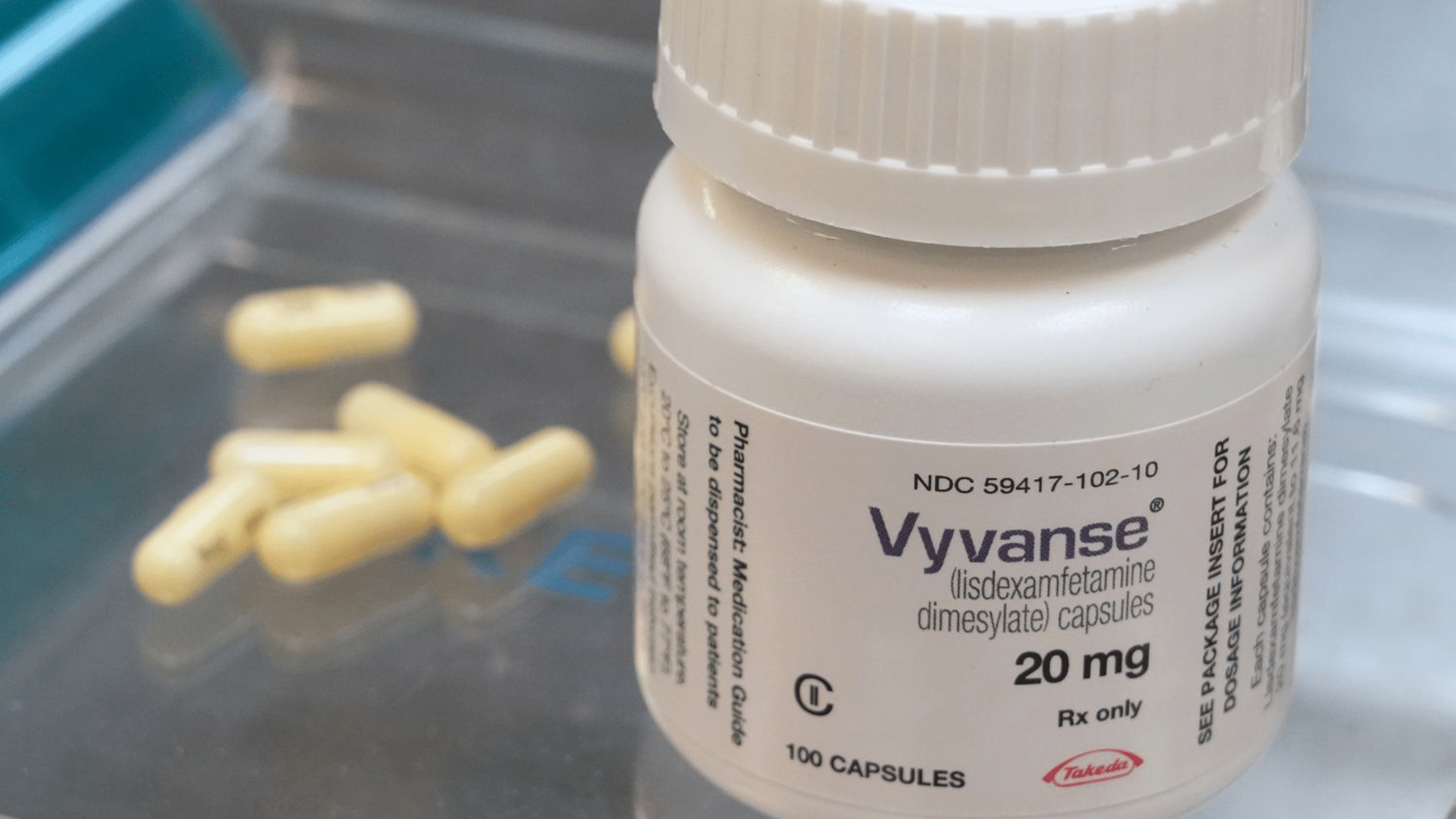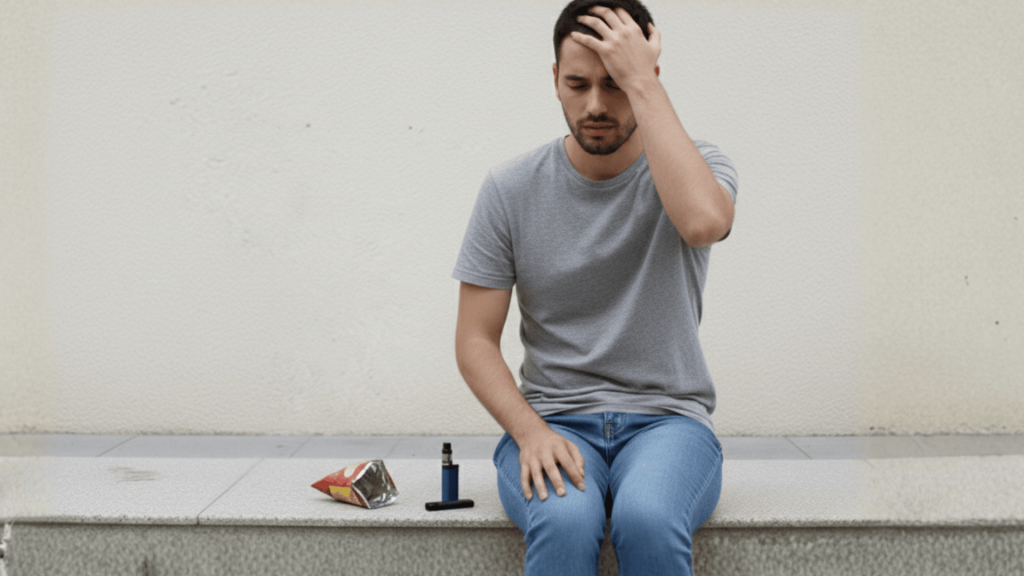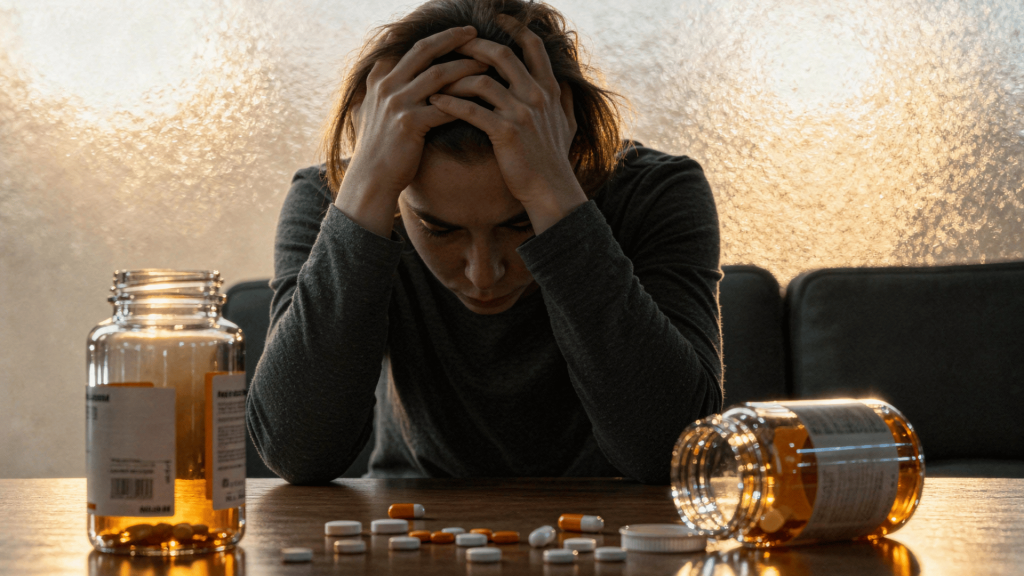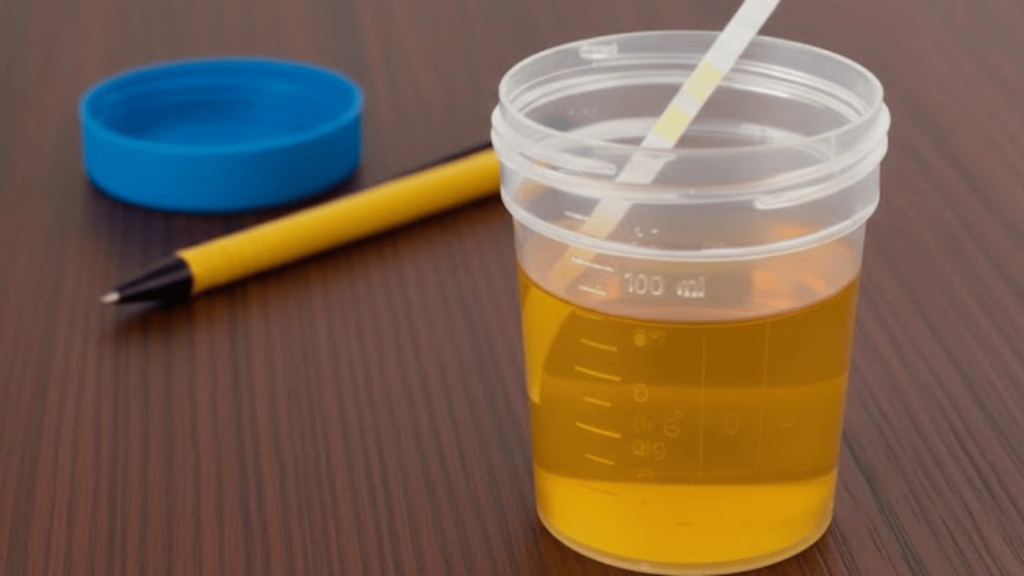I remember when I first heard about Vyvanse from friends who said it made focusing so much easier. Maybe your doctor prescribed it for ADHD, or you’re just wondering what all the talk is about.
Here’s the question that probably brought you here: “Is Vyvanse addictive?” You’re smart to ask. While Vyvanse can be really helpful when used correctly, it can become a problem if misused.
Don’t worry, though, I’m here to give you the straight facts about how it works, what to watch for, and how to stay safe. No judgment, just honest information to help you make the best choices for your health.
What is Vyvanse?
Vyvanse is the brand name for Lisdexamfetamine, a type of stimulant medicine often prescribed for certain health conditions. It is approved for treating ADHD (Attention Deficit Hyperactivity Disorder) in children, teens, and adults, as well as binge eating disorder in adults.
This medicine works by stimulating the central nervous system and increasing two key brain chemicals: dopamine and norepinephrine. These chemicals are closely linked to focus, attention, and self-control.
When dopamine and norepinephrine levels rise, people often find it easier to concentrate, resist impulsive behaviors, and manage everyday tasks. For someone with ADHD, this can mean being able to stay on track at school, handle work projects, and improve relationships with friends and family.
Vyvanse helps by “turning up the volume” on the parts of the brain that control organization and attention. In this way, it can make a big difference in daily life and overall well-being.
Is Vyvanse Addictive?
Yes, Vyvanse can be addictive. As a stimulant medication, Vyvanse does carry a risk for misuse and dependence. The FDA has classified it as a Schedule II controlled substance, which means it has a high potential for abuse.
According to the NIH’s National Institute on Drug Abuse, stimulant medications like Vyvanse should only be used under close medical supervision, as misuse can lead to addiction, cardiovascular issues, and mental health problems.
When Vyvanse affects your brain chemistry by increasing dopamine levels, it can create feelings of euphoria, especially if you take more than prescribed. Your brain likes this feeling and may start to crave it, which is how psychological dependence can develop.
Reasons Vyvanse May Lead to Addiction
Understanding why Vyvanse can be addictive helps explain why it’s so important to use it carefully:
- The euphoria factor: When someone takes more Vyvanse than prescribed, they might experience intense feelings of euphoria, confidence, and energy. This “high” can be really appealing, especially to people dealing with stress, depression, or low self-esteem.
- Uplift performance: Vyvanse can dramatically improve focus and energy levels. Students might use it to pull all-nighters or boost their academic performance. Working professionals might take it to feel more productive and alert. While this might seem harmless, it can quickly lead to psychological dependence.
- The tolerance trap: Over time, your body can build up a tolerance to Vyvanse. This means you might need higher doses to get the same effects, which increases the risk of addiction. Some people start taking more pills or taking them more frequently than prescribed.
- Physical dependence: With regular use, your body can become physically dependent on Vyvanse. This means you might experience withdrawal symptoms if you suddenly stop taking it, which can make it feel impossible to quit.
Signs and Symptoms of Vyvanse Addiction

Recognizing the signs of Vyvanse addiction early can make a big difference. Here’s a breakdown of the main warning signals to watch for:
| Category | Warning Signs |
|---|---|
| Behavioral Signs | Taking higher doses than prescribed, running out of medication too early, seeking prescriptions from multiple doctors, using without a prescription |
| Psychological Signs | Severe anxiety or panic attacks; sudden mood swings; obsessive focus on tasks; paranoia or extreme suspicion |
| Physical Signs | Ongoing insomnia; major weight loss; rapid or irregular heartbeat; heavy sweating even in cool weather |
| Withdrawal Symptoms | Extreme tiredness; deep depression; strong cravings; poor focus; sudden, big increase in appetite |
If you or someone you know is showing these signs, it’s important to reach out for support. Early help can prevent the problem from becoming more serious.
How Vyvanse is Misused
While this medication can be life-changing for people with ADHD when used properly, it’s also being misused in dangerous ways, which is now much more common than usual.
1. Academic Performance: Students and professionals without ADHD take Vyvanse, thinking it’ll give them superhuman focus for exams or presentations. While it might provide temporary alertness, this can lead to serious side effects like anxiety, insomnia, and heart problems.
2. Weight Loss Misuse: Some people misuse Vyvanse as a weight loss aid because it suppresses appetite. This is particularly dangerous and can lead to eating disorders, malnutrition, and cardiovascular issues.
3. Taking Higher Doses Than Prescribed: Even people with legitimate prescriptions sometimes take more than their doctor recommended, thinking extra stress requires extra medication. This can lead to tolerance, dependency, and increased risk of heart palpitations or panic attacks.
4. Sharing or Selling Prescriptions: It’s common for people to share their Vyvanse with friends or family struggling with focus issues. While well-intentioned, this is both illegal and dangerous; what works for one person’s brain chemistry can be harmful for another.
Vyvanse vs. Adderall
Vyvanse and Adderall are two common medicines prescribed for ADHD, but they are not exactly the same. Both are stimulants and can improve focus, attention, and control, but they work in slightly different ways.
Adderall starts working quickly, while Vyvanse is designed to last longer and release more slowly. Some people find one works better for their daily routine than the other.
Side effects may overlap, such as sleep problems or reduced appetite, but how strong or long they last can vary. Knowing the differences helps you and your doctor choose the option that fits your needs best.
| Feature | Adderall | Vyvanse |
|---|---|---|
| Type | Amphetamine salts | Prodrug (lisdexamfetamine) |
| Duration | IR: 4–6 hrs, XR: 10–12 hrs | 10–14 hrs (once daily) |
| Onset | 30–60 mins | 1–2 hrs |
| Effect | Quick, it may cause a crash | Smoother, gradual wear-off |
| Side Effects | Appetite loss, insomnia | Similar, sometimes milder |
| Abuse Risk | Higher | Lower |
| Cost | Generic available, cheaper | Brand only, pricier |
Dangers Linked to Vyvanse Misuse
Misusing Vyvanse can cause serious problems for both your body and mind. Below are some of the main dangers to be aware of:
Short-Term Effects
While some effects might seem appealing at first, they come with risks:
- Intense energy and alertness (but can lead to anxiety and restlessness)
- Dramatically reduced appetite (can lead to malnutrition)
- Uplifted focus (but often on unimportant tasks)
- High mood (followed by crashes when the medication wears off)
- Increased heart rate and blood pressure
Long-Term Effects
The consequences of long-term Vyvanse abuse can be severe:
- Significant weight loss and malnutrition
- Chronic sleep problems and exhaustion
- Heart problems, including irregular heartbeat and high blood pressure
- Mental health issues like anxiety disorders and depression
- Social and relationship problems
- Academic or work performance issues (ironically, the opposite of what many people hope to achieve)
Safe Use of Vyvanse
The good news is that when used properly, Vyvanse can be both safe and incredibly effective for treating ADHD and binge eating disorder.
- Medical supervision is key: Always work closely with your doctor when taking Vyvanse. They’ll monitor your response to the medication, adjust doses as needed, and watch for any concerning side effects.
- Stick to your prescribed dose: This can’t be emphasized enough; take exactly the amount your doctor prescribes, at the times they recommend. Don’t increase your dose on your own, even if you feel like it’s not working as well as it used to.
- Communicate with your healthcare team: Be honest about any side effects you experience, even if they seem minor. Also, let your doctor know if you have a history of substance abuse or addiction, as this might affect how they prescribe and monitor your medication.
Treatment Options for Vyvanse Addiction
If you or someone close to you is struggling with Vyvanse addiction, remember that help is available and recovery is possible.
The first step in treatment is often medical detox. This means slowly lowering the dose of Vyvanse under medical care. Doing this helps manage withdrawal symptoms and lowers the chance of relapse. Quitting suddenly without guidance can be unsafe.
After detox, therapy and counseling become the focus. Cognitive Behavioral Therapy (CBT) helps people recognize harmful thought patterns and replace them with healthier ones. Individual counseling offers private support, while group therapy builds connection with others facing similar struggles. Family therapy can also bring loved ones into the recovery process.
Rehabilitation programs provide more structured care. Inpatient treatment offers round-the-clock support in a facility. Outpatient programs let people live at home while attending sessions. Intensive outpatient programs (IOP) give more frequent care than standard outpatient options.
Conclusion
If you’re worried about whether Vyvanse might be addictive, you’re not alone. I get how overwhelming it can feel.
Vyvanse isn’t automatically addictive, but how you use it really matters. Taking it as prescribed, staying connected with your doctor, and noticing how your body responds can make a big difference.
And if you’ve spotted any warning signs like cravings, mood changes, or trouble functioning without it, don’t ignore them; help is out there. Talk to your doctor, therapist, or someone you trust.
Remember, understanding how Vyvanse affects you is the first step toward staying in control and protecting your well-being.
You deserve to feel healthy, focused, and supported. If you want to read more about other addictions or recovery tips, you can check out other blogs on the website!






